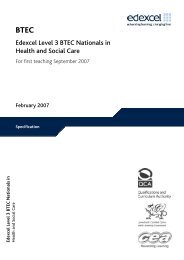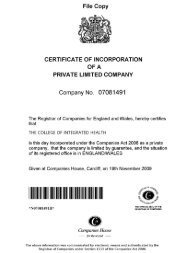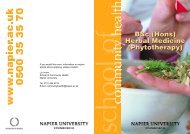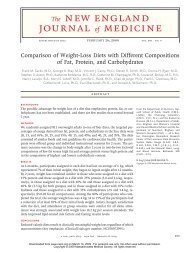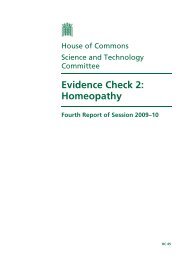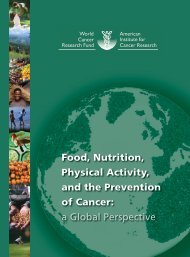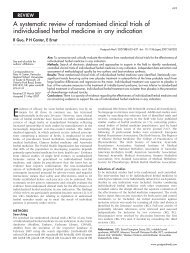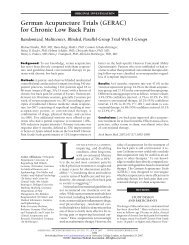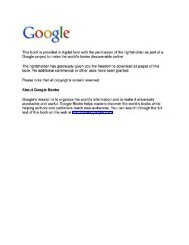Sackett et al. (1996)
Sackett et al. (1996)
Sackett et al. (1996)
Create successful ePaper yourself
Turn your PDF publications into a flip-book with our unique Google optimized e-Paper software.
This description of what evidence based medicine is helps clarify what evidence based medicine<br />
is not. Evidence based medicine is neither old hat nor impossible to practice. The argument that<br />
"everyone <strong>al</strong>ready is doing it" f<strong>al</strong>ls before evidence of striking variations in both the integration<br />
of patient v<strong>al</strong>ues into our clinic<strong>al</strong> behaviour 7 and in the rates with which clinicians provide<br />
interventions to their patients. 8 The difficulties that clinicians face in keeping abreast of <strong>al</strong>l the<br />
medic<strong>al</strong> advances reported in primary journ<strong>al</strong>s are obvious from a comparison of the time<br />
required for reading (for gener<strong>al</strong> medicine, enough to examine 19 articles per day, 365 days per<br />
year 9 ) with the time available (well under an hour a week by British medic<strong>al</strong> consultants, even on<br />
self reports 10 ).<br />
The argument that evidence based medicine can be conducted only from ivory towers and<br />
armchairs is refuted by audits from the front lines of clinic<strong>al</strong> care where at least some inpatient<br />
clinic<strong>al</strong> teams in gener<strong>al</strong> medicine, 11 psychiatry (J R Geddes <strong>et</strong> <strong>al</strong>, Roy<strong>al</strong> College of Psychiatrists<br />
winter me<strong>et</strong>ing, January <strong>1996</strong>), and surgery (P McCulloch, person<strong>al</strong> communication) have<br />
provided evidence based care to the vast majority of their patients. Such studies show that busy<br />
clinicians who devote their scarce reading time to selective, efficient, patient driven searching,<br />
apprais<strong>al</strong>, and incorporation of the best available evidence can practice evidence based medicine.<br />
Evidence based medicine is not "cookbook" medicine. Because it requires a bottom up approach<br />
that integrates the best extern<strong>al</strong> evidence with individu<strong>al</strong> clinic<strong>al</strong> expertise and patients' choice, it<br />
cannot result in slavish, cookbook approaches to individu<strong>al</strong> patient care. Extern<strong>al</strong> clinic<strong>al</strong><br />
evidence can inform, but can never replace, individu<strong>al</strong> clinic<strong>al</strong> expertise, and it is this expertise<br />
that decides wh<strong>et</strong>her the extern<strong>al</strong> evidence applies to the individu<strong>al</strong> patient at <strong>al</strong>l and, if so, how it<br />
should be integrated into a clinic<strong>al</strong> decision. Similarly, any extern<strong>al</strong> guideline must be integrated<br />
with individu<strong>al</strong> clinic<strong>al</strong> expertise in deciding wh<strong>et</strong>her and how it matches the patient's clinic<strong>al</strong><br />
state, predicament, and preferences, and thus wh<strong>et</strong>her it should be applied. Clinicians who fear<br />
top down cookbooks will find the advocates of evidence based medicine joining them at the<br />
barricades.<br />
Some fear that evidence based medicine will be hijacked by purchasers and managers to cut the<br />
costs of he<strong>al</strong>th care. This would not only be a misuse of evidence based medicine but suggests a<br />
fundament<strong>al</strong> misunderstanding of its financi<strong>al</strong> consequences. Doctors practising evidence based<br />
medicine will identify and apply the most efficacious interventions to maximise the qu<strong>al</strong>ity and<br />
quantity of life for individu<strong>al</strong> patients; this may raise rather than lower the cost of their care.<br />
Evidence based medicine is not restricted to randomised tri<strong>al</strong>s and m<strong>et</strong>a-an<strong>al</strong>yses. It involves<br />
tracking down the best extern<strong>al</strong> evidence with which to answer our clinic<strong>al</strong> questions. To find out<br />
about the accuracy of a diagnostic test, we need to find proper cross section<strong>al</strong> studies of patients<br />
clinic<strong>al</strong>ly suspected of harbouring the relevant disorder, not a randomised tri<strong>al</strong>. For a question<br />
about prognosis, we need proper follow up studies of patients assembled at a uniform, early point<br />
in the clinic<strong>al</strong> course of their disease. And som<strong>et</strong>imes the evidence we need will come from the<br />
basic sciences such as gen<strong>et</strong>ics or immunology. It is when asking questions about therapy that we<br />
should try to avoid the non-experiment<strong>al</strong> approaches, since these routinely lead to f<strong>al</strong>se positive<br />
conclusions about efficacy. Because the randomised tri<strong>al</strong>, and especi<strong>al</strong>ly the systematic review of<br />
sever<strong>al</strong> randomised tri<strong>al</strong>s, is so much more likely to inform us and so much less likely to mislead<br />
us, it has become the "gold standard" for judging wh<strong>et</strong>her a treatment does more good than harm.



